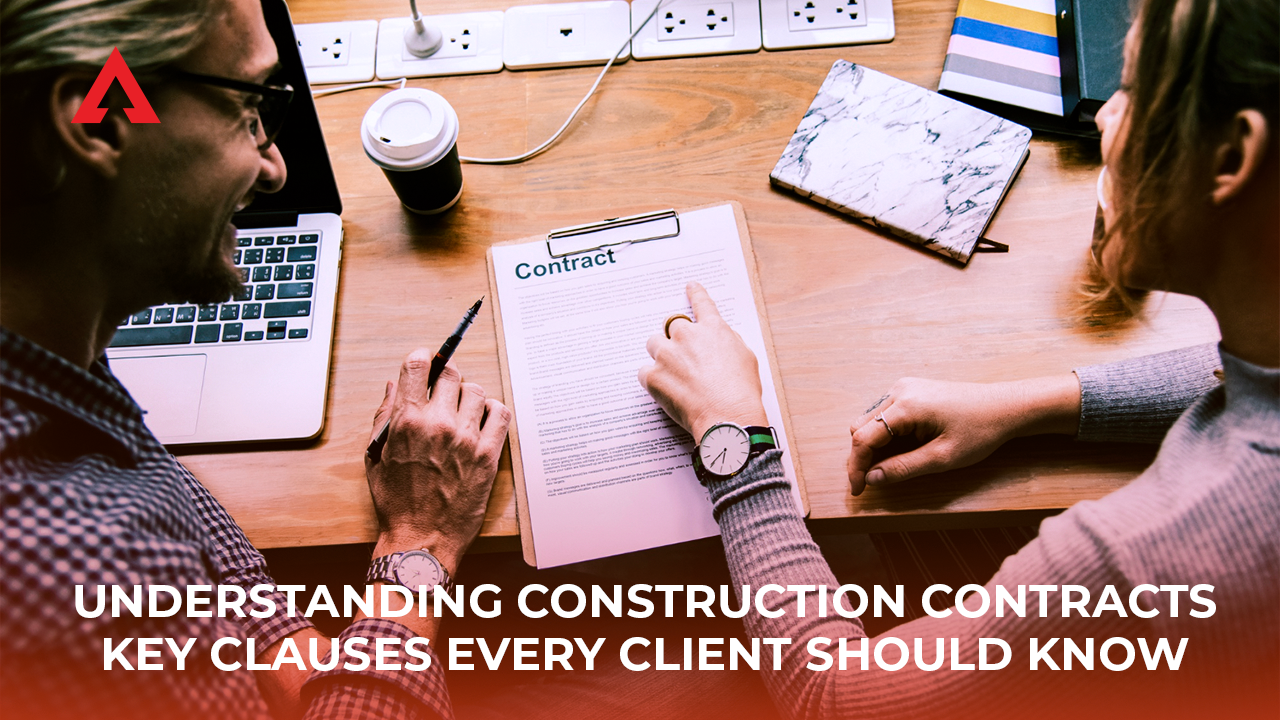Mon, Jul 21, 2025
Read in 4 minutes
A well-drafted contract isn't just paperwork—it’s your framework for project success. Always work with a qualified construction attorney or contract specialist to tailor these clauses to your specific project.

Understanding your construction contract is essential for:
When it comes to building or renovating a home, office, or commercial space, the construction contract is the blueprint for the entire project. It’s not just a legal safeguard—it sets expectations, defines responsibilities, and can make or break your project’s success. In this in-depth guide, we’ll cover:
A construction contract is a legally binding agreement between parties involved in a construction project—typically an owner (client) and a general contractor, possibly including subcontractors and suppliers.
It outlines crucial elements:
A strong contract acts like a project roadmap—it clarifies expectations, prevents misunderstandings, and protects you in case of disagreements or delays (Bachara Construction Law Group, PandaDoc).
Before diving into clauses, it’s important to know the main types of construction contracts:
The contractor agrees to complete the project for a predetermined price. Ideal when the scope is precise. However, changes mean change orders—and more cost (Smith Debnam).
The owner pays the actual cost of labor and materials plus a predetermined fee or percentage. Offers flexibility in uncertain projects (Wikipedia).
A hybrid, similar to cost-plus, but total cost capped at a maximum unless changes are made.
Common in public projects. Prices are assigned per unit of work (e.g., cubic meters of concrete).
Choosing the right contract structure is as crucial as understanding its clauses.
Comprehensive scrutiny of contract clauses can save you time, money, and future headaches. These are the essentials construction contract clauses every client should know:
The foundation of your contract defines what is included (and excluded). Must detail tasks, quality standards, materials, and referenced plans (Vocal, Plumtree & Brunner LLP).
Why it matters: Vague scopes lead to cost overruns and disputes.
Specifies how, when, and how much you’ll pay—typically through progress milestones (“% of completion”) or dates. Includes:
Missing this increases your exposure to financial risk.
Projects rarely run exactly as planned—this clause governs how changes get approved and priced (JD Supra, Wikipedia).
Ensure:
Covers start/end dates, critical milestones, and liquidated damages—predetermined penalties for missed deadlines (Wikipedia, PandaDoc, Bachara Construction Law Group).
Also, watch out for No Damages for Delay clauses that limit your ability to claim extra compensation (PilieroMazza PLLC).
Specifies when and how the contract can end without default:
This protects against stalled or underperforming projects.
Excuses for events beyond control—natural disasters, strikes, etc.—without legal liability (Wikipedia).
Shifts liability for damages/injuries—make sure it’s fair and mutual.
Specifies types and levels of coverage: general liability, builder’s risk, workers’ comp, bonds to assure performance (Porter Wright Morris & Arthur LLP).
Addresses unexpected site issues (e.g., hidden pipes, unstable soil). Often called “differing site conditions” or “change conditions” clause (Fohlio).
Essential for transparency and fair cost-sharing.
The owner withholds part of the payment to ensure completion of all work, including defect fixes (Wikipedia).
Ensure schedule for release is clear and fair.
Defines how disputes get handled—via:
Lower-cost, faster alternatives (like arbitration) are often preferred.
Standard provisions that govern general interpretation:
Although “boilerplate,” neglecting them can lead to legal surprises.
These clauses aren’t just legal jargon—they shape your project’s outcome:
When clients understand these clauses, they gain clarity, confidence, and control over their projects.
With these essential clauses in place, you’ll be equipped to manage construction confidently, avoid surprises, and achieve a successful result, on time and within budget.